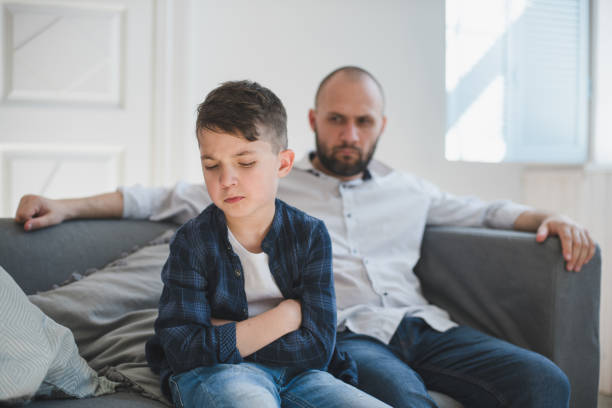Parents are very excited about the baby during pregnancy. The children’s room is already furnished, the tiny rompers have been bought and the place in the nursery has already been reserved. Everything seems to be planned down to the last detail. But children grow fast and suddenly the question arises as to which parenting concept is actually the right one and how to approach the whole thing as error-free as possible. Especially when it comes to the first child, most parents still have a lot of uncertainties when it comes to raising their offspring.
Different educational concepts
Therefore, many different educational concepts and methods have been developed over the years. Most of them now even have their own contact points where parents can find out about the individual upbringing concepts and get help. From Montessori and Waldorf pedagogy to intercultural education or Fröbel pedagogy, there are a large number of recommendations that parents should follow when dealing with their child. But it is precisely this huge amount of information that can quickly become overwhelming and the question of the ideal upbringing remains open.

The emergence of the concept
For this reason, as early as the 1960s and 1970s, the term anti-authoritarian upbringing, which encompasses several educational concepts, was coined. Despite the fact that this education is opposed to the authoritarian position of educators, it is based on established pedagogical goals, norms, and models. Above all, the rights of the child, freedom, and developmental autonomy are her focus.
Characteristics of upbringing
Accordingly, children should not be restricted by constraints or the dominance of parents and educators but should be able to develop their individual personalities freely. Therefore, they should have the freedom to make their own decisions right from the start and not have them dictated by their parents. However, this also means that they have to live with the consequences of their decisions and learn from them. Consequently, the psychological independence of the children is promoted. And accordingly, they can develop into creative, tolerant, free-spirited, responsible, and independent personalities.
Accordingly, the communication between parents and children in the anti-authoritarian upbringing takes place at eye level. Unlike in other models, the parents do not have the upper hand over the child, but cooperation is characterized by mutual respect and friendliness. Special online courses on nonviolent communication are now available so that parents can learn how best to handle difficult situations without punishment and with empathy. If the family implements this peaceful interaction correctly, conflicts in everyday life can be resolved more quickly and the bond between them can be strengthened.
Possible sources of error
Unfortunately, there are many parents who have misunderstood the concept of anti-authoritarian parenting. Consequently, they have implemented the concept incorrectly. Because they understand the term “anti-authoritarian” to mean that the child is no longer subject to any limits or rules. But that is not the purpose of this method. Since children cannot realistically assess many things due to their little life experience, they are dependent on their parents’ limits. These are for your own protection. Therefore, “anti-authoritarian” can mean much more than “free from coercion, hierarchy, and violence of any form”.
If children grow up completely without limits and rules, they can grow into selfish personalities. Then many of them also show narcissistic personality disorders. As adults, they also have problems subordinating themselves to authorities at work or in everyday life. Social skills and the ability to empathize with other people can also be underdeveloped as a result of the wrong upbringing. In this way, the children can demonstrate egocentric behaviors that remain in adulthood without conscious self-reflection.
Conclusion on anti-authoritarian education
Above all, parents are challenged in the early stages of their children’s lives. The path of anti-authoritarian upbringing works above all when the parents are aware of their responsibility towards the child. They should give him the freedom to grow up without constraints and restrictions. Nevertheless, sensible limits and rules must be set for the child, since they usually do not yet have the necessary life experience to correctly assess certain situations.

Above all, they serve to protect the child and to teach him how to behave in society. It is therefore particularly important that children understand and accept them. It is therefore important that parents explain to them the meaning and background of these boundaries and rules of conduct.
Non-violent communication plays a particularly important role. Adults and children should talk to each other in a friendly and understanding manner. In this way, the child learns that their opinions and feelings are taken seriously and that conflicts are resolved in a respectful and peaceful manner.
Consequently, this approach promotes the positive development of the child’s autonomy, self-confidence, and self-esteem. It also learns to treat other people with empathy, respect, and understanding. At the same time, the bond and mutual trust between parents and child will be strengthened and the child will be able to develop deep relationships and friendships throughout their lives.
